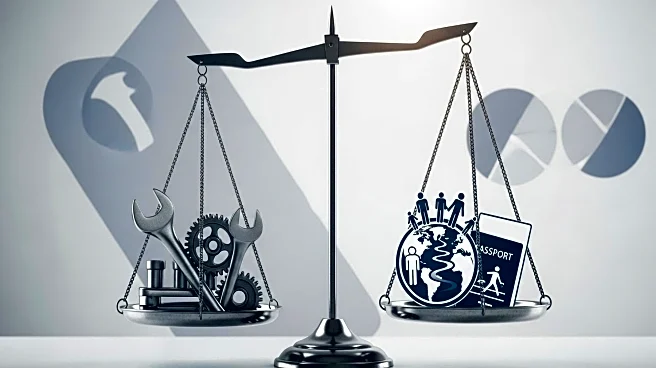What's Happening?
President Trump is facing an economic trilemma as he attempts to boost U.S. manufacturing, reduce immigration, and keep prices low simultaneously. These goals, while individually viable, are proving difficult to achieve collectively. The administration's approach to trade and immigration is causing concern among businesses, consumers, and workers, as tariffs and immigration policies may lead to increased prices and labor shortages. The crackdown on immigration, including a recent raid on a Hyundai plant, has raised concerns about foreign investment and the availability of skilled workers needed for manufacturing.
Why It's Important?
The conflicting priorities in President Trump's economic agenda could have significant implications for the U.S. economy. The push to increase domestic manufacturing while restricting immigration may lead to labor shortages, affecting production capabilities and potentially driving up costs. Tariffs intended to protect American industries could result in higher consumer prices, impacting purchasing power and economic growth. The administration's policies may also deter foreign investment, as companies face uncertainty regarding immigration and trade regulations.
What's Next?
The administration's policies are likely to continue influencing the economic landscape, with potential adjustments needed to balance manufacturing growth, immigration, and price stability. Businesses may seek alternative strategies to navigate these challenges, such as investing in automation or relocating operations. The ongoing debate over immigration and trade policies could lead to further legislative and regulatory changes, impacting various sectors and stakeholders.
Beyond the Headlines
The broader implications of President Trump's economic policies extend beyond immediate economic concerns. The approach to immigration and trade reflects deeper cultural and political dynamics, influencing public sentiment and international relations. The administration's stance may affect the U.S.'s global competitiveness and its ability to attract talent and investment, shaping the country's long-term economic trajectory.











